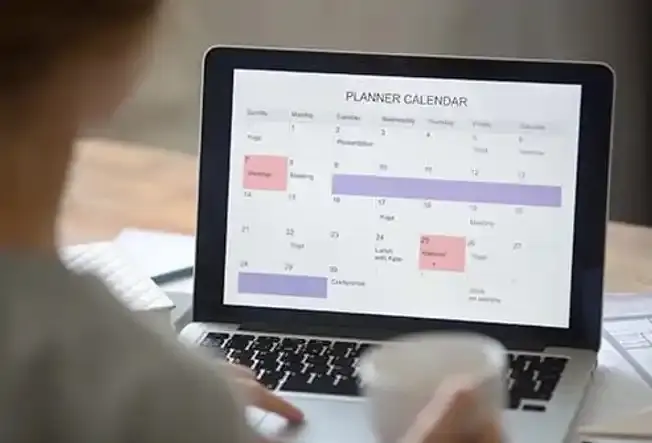How can I stop wasting time?
Wasting time is something that most humans can relate to and potentially waste time at some point. Unnecessary phone calls, text messages, and social media are just some of the distractions that contribute to a time-wasting society. In addition, procrastination and lack of time management can also hinder productivity.
Show key points
- Distractions like smartphones, social media, and unnecessary interactions heavily contribute to time-wasting habits.
- Establishing clear short-term and long-term goals helps create a structured plan for achieving productivity.
- Creating and maintaining a consistent daily routine can boost mental health and ensure efficient time use.
- ADVERTISEMENT
- A prioritized to-do list allows for better organization and helps reduce stress by focusing on the most important tasks.
- Utilizing time management techniques like "time boxing" helps break tasks into manageable intervals and increases productivity.
- Avoiding multitasking and working from a single device reduces mental fatigue and improves task focus.
- Overcoming procrastination requires self-belief, starting tasks early, and focusing on positive outcomes instead of fears.
If you're wondering "How can I stop wasting time?" keep reading for tips on completing important tasks and managing your time more efficiently.
Basic tips to stop wasting time
Distraction is one of the main reasons for lack of concentration. Here are 10 time-saving tricks to help you effectively stop wasting time. These tips focus on a productive working day or week. However, many apply to complete projects.
Recommend
Prepare yourself to win:

• Discover your short and long-term goals
By being clear about the final game, you can identify the small steps required to get there, and then see how they fit into your life.
• Create and stick to a daily routine
Every human being needs a routine for good mental health and well-being. Schedule a wake-up time and set specific times to complete your daily tasks if you work from home.
• Set up a to-do list and prioritize
You can either type them or use one of the notes apps on your cell phone. You can categorize your tasks into three groups:
o Urgent and important
o Not urgent but important
o Urgent but not important
To reduce stress, the fewer tasks you have to complete within urgent and important tasks, the better. Cross out every task that needs to be done as you complete it to measure your productivity. At the end of the day, think about your progress and think about the next day.
• Schedule your time
Make a plan with a rough idea of how long the task might take and your priorities. Discover the most productive schedule and think about how you prefer to work. For example, are you more effective during the first hour of your day?
At the same time, be flexible and adaptable. Focus on completing the most complex tasks first.
Work in time intervals:

• Set timeframes to complete tasks
For example, the first hour of the day could be spent studying how to improve your career, the second hour could be spent replying to emails and so on. Be sure to spend the time allotted for each task before the next one.
• Work on tasks at specific intervals or "time boxing"
This technique breaks them down into smaller tasks. This technique contributes to time management and improves your overall progress. You may also find that you have more free time in your hands.
Randomly moving from one task to another without guidance can hinder your productivity.
Elimination of distractions:

• Reduce interaction with your smartphone
Smartphones are a great distraction tool. Once you unlock your cell phone, it can be difficult to resist checking notifications, text messages, social media, etc. Consider enabling Do Not Disturb mode or setting your phone to silent mode during the workday.
• Reduce interaction with people
Stay in an environment where you are not surrounded by gossip or any other distractions. Where possible, use an empty room to work in or use earphones to prevent others from disturbing you. You don't have to listen to anything.
• Work from a single device, if possible
Switching between different devices can lead to procrastination. Every time you make a change, you'll need to refocus. Consider collecting everything you need for the workday on one device before you begin.
• Avoid multitasking
Although multitasking may seem like a good idea to complete multiple tasks at once, it is ultimately a waste of time. When the human mind constantly moves between jobs, it becomes less efficient and more prone to making mistakes.
• Set time limits for your breaks
Set time limits and stick to them. A five-minute break can quickly turn into an hour. For example, watching videos on YouTube or browsing other social media can grab your attention for hours. Do something during your break that is unlikely to cause you to run over time.
Always be sure to take your lunch break, preferably away from the screen. A complete 30-minute change of activity, such as eating or going for a walk, will set you up for the rest of a productive day.
No need to wait to start:
• Use time wisely
If you have the opportunity to start your workday 30 minutes earlier than your scheduled time, take advantage of the opportunity and just get started. Delay can cause procrastination, which is a waste of time to do something else before starting what needs to be done. Unless the other thing you're doing is supporting your progress, start ahead of schedule and use the time wisely.
• You have to believe in yourself
Sometimes, a person procrastinates in starting a task for fear of failure and even success. Low self-confidence and self-criticism can cause procrastination in different types of tasks and tasks that you have never done before.
Procrastination based on fear is human nature. To help overcome them, try to address your fears and focus on positive outcomes to overcome them. Be prepared for success by implementing the above tips and continue to believe in yourself.
![]()
How to create a small online store for online sales?
Starting an online store is a smart move to sell your products and reach more people. Begin small, focus on unique items, choose a catchy store name, and use easy platforms like Shopify or Wix. Good design, secure payments, solid marketing, and great service are key to your store’s success. more- ADVERTISEMENT
![]()
Belgrade, Serbia: Europe's new food capital?
Belgrade is now a buzzing foodie hotspot where creative chefs like Vanya Pushkar and Filip Seric reinvent traditional Serbian dishes with fresh flair. From smoked duck with herbs to grilled belly with currant sauce, the city's modern cuisine celebrates rich local flavors in vibrant, stylish settings. more- ADVERTISEMENT
![]()
The Seven Years' War: A Global Conflict Defining a New Era
The Seven Years' War, fought from 1756 to 1763, was the first true global war, reshaping power across Europe, North America, and beyond. It marked Britain's rise as a colonial giant and set the stage for revolutions to come, with Frederick the Great and key battles leaving lasting impacts. more- ADVERTISEMENT
![]()
The Enigmatic Universe: 8 Astonishing Facts about Space and Time
Black holes might be gateways to parallel worlds, and time itself could possibly be reversed—just theories for now, but thrilling ones that stir curiosity. Dark energy and matter, though unseen, dominate our universe. And yes, UFOs still spark debate. The cosmos remains full of mysteries waiting to unfold. more- ADVERTISEMENT
![]()
The art of being kind to your boss
The Gentle Art of Managing Your Manager more- ADVERTISEMENT
![]()
What are lean genes? Does it really help you lose weight?
Some people stay slim thanks to their genes, like PPARGC1A, which boosts metabolism. A study showed those with lean genes lost more weight on the same diet than those with obesity-linked genes. Still, healthy habits matter—genes alone can't keep you slim or protect you from gaining weight over time. more- ADVERTISEMENT
![]()
Time poverty: modern distress and how to escape from its grip
Despite all our modern tech advantages, many feel trapped in a cycle of busyness, constantly short on time. This sense of “time poverty” drains well-being and productivity. The key to breaking free? Align with what truly matters, simplify life, practice mindfulness, and build healthier ways to cope with stress. more- ADVERTISEMENT
![]()
The Science Behind the Fireworks: Detecting Magic in the Sky
Fireworks light up the sky with magic, but behind the scenes, it’s all science—from chemistry creating dazzling colors to physics shaping every explosion. With modern tech, they’re safer and even eco-friendlier, blending beauty and brains for unforgettable shows that wow us while caring for the planet. more- ADVERTISEMENT
![]()
A book that may interest you: 52 practical rules for success
A book that might interest you - Fifty-Two Rules of Thumb for Success Without Losing Yourself more- ADVERTISEMENT
![]()
Surprising fact: The environmental impact of beef outweighs cars
Surprisingly, beef production harms the environment more than cars, mainly due to cows’ methane emissions and the massive resources needed to raise them. From deforestation to acid rain, the impact is huge. Cutting down beef consumption, even slightly, makes a big difference for the planet. more- ADVERTISEMENT





















